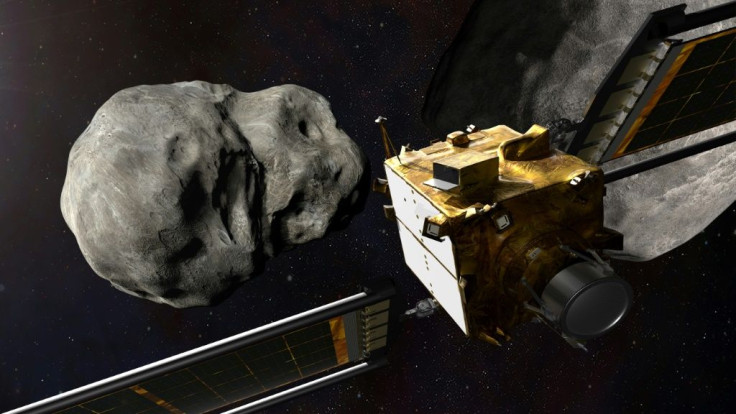NASA's DART Mission Won't Knock Asteroid On A Collision Course To Earth
NASA's spacecraft will deliberately slam into an asteroid Monday, but the impact won't set the asteroid on a collision course with Earth.
NASA's Double Asteroid Redirection Test (DART) will mark the first mission to assess whether asteroids can be diverted if one were ever discovered to be headed toward Earth.
The mission could help determine whether a deliberate crash into an asteroid could prevent a catastrophe and spare human lives.
On Monday, Sept. 26, the #DARTMission will intentionally crash into a non-hazardous asteroid to try to change its orbit. Watch the action live as this #PlanetaryDefense test takes place.
— NASA Asteroid Watch (@AsteroidWatch) September 21, 2022
Plan a watch party: https://t.co/xhscr83u4d
Watch live at 6pm ET: https://t.co/ny3onzx0Na pic.twitter.com/ncgLpH6nD9
Launch in November, the DART spacecraft is heading toward the Dimorphos asteroid, which orbits the larger asteroid Didymos.
"For the first time ever, we will measurably change the orbit of a celestial body in the universe," said Robert Braun, head of the Johns Hopkins University Applied Physics Laboratory's Space Exploration Sector.
Dimorphos currently poses no threat to humanity and the factor will remain after the DART mission.
The DART spacecraft will accelerate at about 15,000 miles per hour when it crashes into the asteroid with the expectation that it will push the celestial body into a smaller orbit.
"There's no danger in this whatsoever," Prof. Colin Snodgrass, a member of the DART mission science team at Edinburgh University, noted.
"We are only changing its orbit around the bigger asteroid, we're not changing its orbit around the sun. It cannot come towards Earth."
Dimorphos takes around 11 hours and 55 minutes to orbit around Didymos. After colliding with the spacecraft, the time is expected to be cut down to 11 hours and 45 minutes.
When DART strikes the Dimorphos, the collision will cause nothing more than a cloud of debris and potentially alter the speed of the Dimorphos asteroid.
Scientists will rely on several methods, including telescopes, to observe the collision. They will determine whether the time it took the asteroid to orbit changed by monitoring the brightness of Didymos.
The larger asteroid slightly dims each time Dimorphos passes in front to complete an orbit.
The Dimorphos asteroid is expected to collide with the DART spacecraft on Monday at 7:14 p.m. ET.

© Copyright IBTimes 2025. All rights reserved.






















